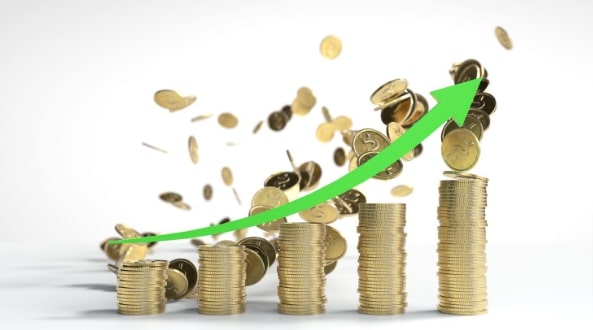The foundation of the Australian economy is based on resilience. In the wake of the pandemic, the Australian economy has rebounded rapidly and it is still the 14th-largest economy in the world in terms of nominal GDP (gross domestic product). Australia is also the 24th-largest goods importer and the 21st-largest goods exporter. With a large and growing consumer market and an abundance of natural resources, Australia has a fairly stable economic environment.

Australia has a Western-style capitalist environment with one of the highest per capita GDP in the world, most of which is derived from the service sector. Interestingly, the mining sector and the agriculture sector also contribute a huge chunk to Australia’s GDP along with the tourism sector. Thanks to Australia’s lush hinterlands, sun-kissed beaches, and other cultural riches, it has attracted tourists from all over the world along with their riches. Let’s find out more about how the Australian economy works.
The Intricacies of the Australian Economy
Australia has a mixed economy which has experienced a massive boom since the economic liberalisation during the 1980s. Even though the economic giant experienced a fall in GDP and employment after the recession in the early 1990s and 2020, it bounced back quickly pertaining to its mining sector which evolved since the gold rush in 1840. However, it would be unfair to credit the mining sector solely for the economic stability of the nation. In fact, there are multiple pillars, including agriculture, manufacturing, service, tourism, and finance which have upheld the foundation of the Australian economy.

Mining Sector
Australia is one of the largest producers of gold, silver, and copper in the world and the largest producer of iron ore. It is also one of the largest producers of coal, bauxite, manganese, zinc, cobalt, uranium, nickel, and sulphur, making it one of the most mineral-rich nations. A vast revenue of the Australian economy is derived from the export of these minerals and metals.
Service Sector
Australia may not be the Silicon Valley but it is no less in terms of its IT services. A vast majority of the Australian population, especially in the urban areas and state capitals cities are engaged in service sectors which contributes to the major chunk of GDP in the country.
Manufacturing Sector
Even though Australia was one of the manufacturing giants during the 1960s with companies like Ford, Holden, Mitsubishi, and Toyota having their hubs in the country, the manufacturing GDP of the country has declined since then
Agricultural Sector
Australia has a lush tapestry of natural resources, ideal for agriculture and irrigation. Even the locals are spoiled with farm fresh produce. Fishing and forestry in Australia is also a booming industry which not only contributes to the nation’s GDP and provides employment but also earns huge sums of revenue from exports.
Tourism Sector
The tourism sector is one of the most important pillars of the Australian economy comprising domestic as well as international tourists. According to the World Tourism Organisation, Australia is the fortieth most visited country in the world. Even though the majority of the GDP comes from domestic tourism in Australia, the number of international tourists has also increased in the country, thereby strengthening its economy. Let’s find out more about the contribution of the tourism sector to the Australian economy.
The Role of Tourism in the Australian Economy

The importance of tourism in boosting the Australian economy is immense. It generates thousands of jobs across the country and aids in the development of the infrastructure of the country as well. When more and more tourists visit Australia and encourage the authorities to provide the tourist with best-in-class and safe facilities. This leads to new roads and highways, developed parks, improved public spaces, new airports, and possibly better schools and hospitals. Moreover, when tourists spend their money on accommodations, local food, and souvenirs, it also helps the local businesses grow.
Australia generated $60.8 billion in direct tourism gross domestic product (GDP) in the financial year 2018–19. It also made up 5% of the total workforce in the country in the same year by employing over 666,000 Australians. Before the pandemic hit in 2019, it was recorded that on an average, Australians travelled four times a year domestically. One in every eight businesses across the country was in the tourism businesses and one in twelve Australians were employed in the tourism sector in 2018-19. That’s not all folks! There was also a massive growth in the number of tourists from countries like India and China. No wonder the tourism sector attracted the riches. Unfortunately, something changed for the worse. The Covid 19 pandemic left the tourism sector gasping for air. But how has COVID affected tourism in Australia?
The Impact of Covid
After the Covid-19 pandemic hit, national and mostly international travel ground to a halt all across the globe including Australia. The tourism economy was heavily hit in 2020, with a total loss of almost $80 billion in tourism revenue in just one year. This served as a major wake-up call, reminding each and every one of us just how important the tourism sector is in the context of the global and national economy. The ripple effects were felt not only by tour operators and accommodation providers but also by small businesses in regional areas heavily reliant on tourism.
The Comeback of Tourism in 2022 and the Future Ahead
With the borders opening for tourism in 2022, the Australian economy heaved a sigh of relief and new hopes for the economy were reborn. Domestic tourism in the country has been able to rebound substantially, even though the numbers are significantly lower than in pre-pandemic times. However, total domestic tourism spending and the average spend per visitor have increased since March 2022, as compared to pre-pandemic times. International tourism has also picked up pace since 2022, but the number of outflow of International tourists has been greater than the number of inflow of tourists. The good news is that the tourism industry is likely to recover completely in just a few years, and tourism will continue to be one of the strongest pillars of a sustainable economy for Australia.

